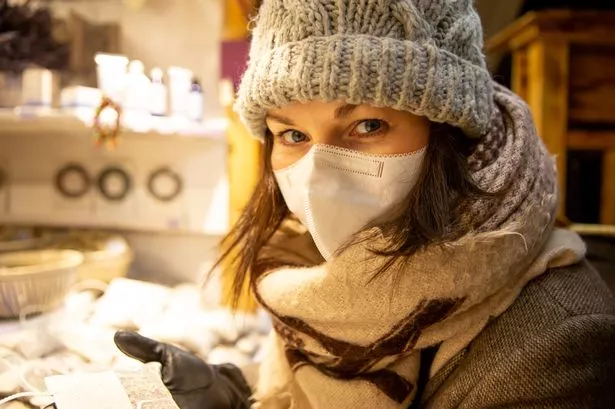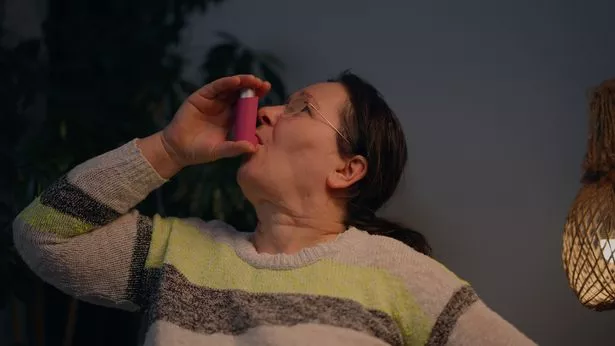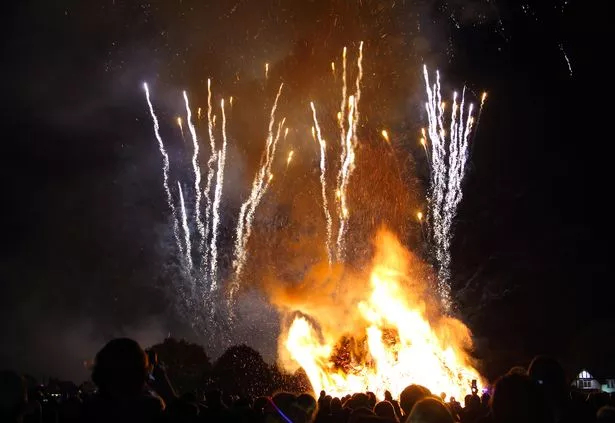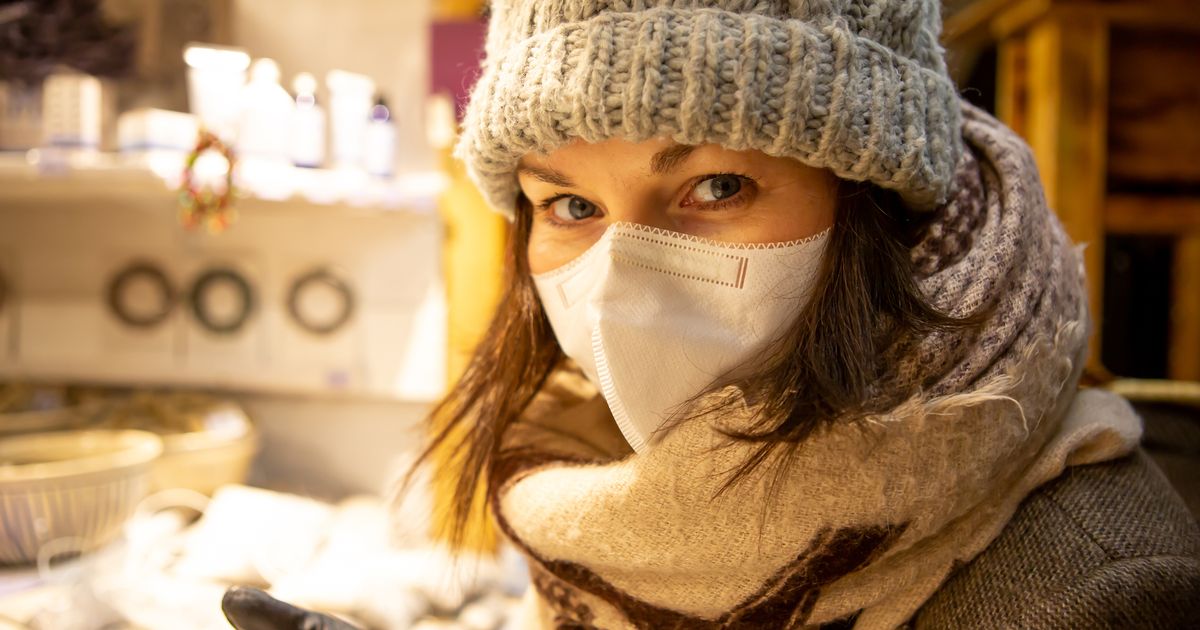People and children are being urged to protect themselves if they suffer from a common medical condition
08:42, 05 Nov 2025Updated 10:51, 05 Nov 2025
 Consider wearing a scarf or face mask, the health expert says(Image: Getty)
Consider wearing a scarf or face mask, the health expert says(Image: Getty)
Millions of people are being urged to wear face masks today (November 5) as many are expected to experience symptoms from a common health condition that are more severe than usual. Health experts are encouraging people to wear some kind of face covering or a scarf to lessen the risk.
In the UK, the number of people who suffer from asthma is high, with 7.2 million people estimated to have it, according to NHS stats, which is approximately eight out of every 100 people. More than eight million people have been diagnosed with asthma at some point in their lives, though it is possible to outgrow it.
With it being Bonfire Night, doctors are warning people with asthma and the parents of children with asthma about the potential impact of fireworks and bonfires ahead of tonight’s UK-wide celebrations. Plus, there may be many more events scheduled for the weekend.
Many public and private bonfires and firework displays are expected to take place this week. Due to a mixture of cold air and excessive smoke, those with respiratory issues are expected to struggle.
In light of this, Dr Zoe Lees, who holds a PhD in Metabolic Medicine and serves as a medical writer for online pharmacy MedExpress, shares insights on how this event can impact those with asthma. She also offers advice to parents on how to spot asthma in their children.
 The celebrations can impact those with asthmaHow smoke can affect asthma and precautions to take
The celebrations can impact those with asthmaHow smoke can affect asthma and precautions to take
She said: “Smoke from bonfires or fireworks can irritate airways, causing inflammation and triggering asthma symptoms. Taking your asthma medication regularly is a must for any day-to-day activity, but particularly around bonfire night. Making sure you have your reliever inhaler on you whilst you attend Bonfire night is important.
“In the event you do develop acute symptoms, taking simple steps like standing away from the fire can help. Everyone’s experience of asthma is different, but if you notice you’re having your normal symptoms of an asthma attack, this can be a clue that your asthma is being triggered. Look out for early signs of an asthma attack before symptoms escalate. This could be wheezing, breathlessness or a tight chest sensation, amongst others.
“Using your reliever medication as prescribed is important to control symptoms and can help prevent severe attacks, and seeking help quickly if symptoms worsen significantly is key. Larger events may have medical teams on site, but if not and your symptoms are worsening, call 999.”
 Mixture of cold air and smoke can make things worseFive things people with asthma have been told toEnsure you have been taking your prescribed asthma medication regularly in the lead-up to the event.Consider wearing a scarf or face mask, as breathing in cold, dry air can trigger asthma symptoms.Keep a copy of your asthma action plan readily available, such as on your phone, so that the people around you know what to do if your symptoms worsen.Take your reliever inhaler with you to any fireworks events.When attending a bonfire or fireworks event, check the wind direction and stand upwind to minimise exposure to smoke.Common symptoms of asthmaA dry cough or one that produces little mucus, which can be worse at night or during exercise.A high-pitched whistling sound, especially when breathing out.Feeling like you can’t get enough air.A feeling of pressure, squeezing, or a weight on the chest.
Mixture of cold air and smoke can make things worseFive things people with asthma have been told toEnsure you have been taking your prescribed asthma medication regularly in the lead-up to the event.Consider wearing a scarf or face mask, as breathing in cold, dry air can trigger asthma symptoms.Keep a copy of your asthma action plan readily available, such as on your phone, so that the people around you know what to do if your symptoms worsen.Take your reliever inhaler with you to any fireworks events.When attending a bonfire or fireworks event, check the wind direction and stand upwind to minimise exposure to smoke.Common symptoms of asthmaA dry cough or one that produces little mucus, which can be worse at night or during exercise.A high-pitched whistling sound, especially when breathing out.Feeling like you can’t get enough air.A feeling of pressure, squeezing, or a weight on the chest.
Other potential symptoms include:
Difficulty sleeping due to coughing, wheezing, or breathlessnessIncreased mucus productionFatigue or a general feeling of low energyRapid breathingAnxiety or panicHow can I spot asthma in my child?
Dr Zoe Lees explains: “Asthma diagnoses tend not to be made before age five, as it is difficult for babies and infants to complete the necessary testing or explain their symptoms fully. However, some indicators that your child may be at risk of asthma are a family history of atopy (allergies/hay fever/asthma/eczema) or recurrent respiratory symptoms such as viral-induced wheezing episodes, a chronic cough or breathlessness.”
If you believe you or your child is exhibiting asthma symptoms, it is recommended that you consult a healthcare professional for a medical evaluation. If you or your child also has asthma symptoms that keep coming back or are getting worse, you should see a doctor.
Also, if asthma is making it hard to do everyday things, waking you up at night, or if you notice you’re using your inhaler more than usual, it’s time to get checked out. If you have a bad asthma attack, you need to get medical help right away. When experiencing a serious asthma attack, sit up straight and try to remain calm while seeking help.

